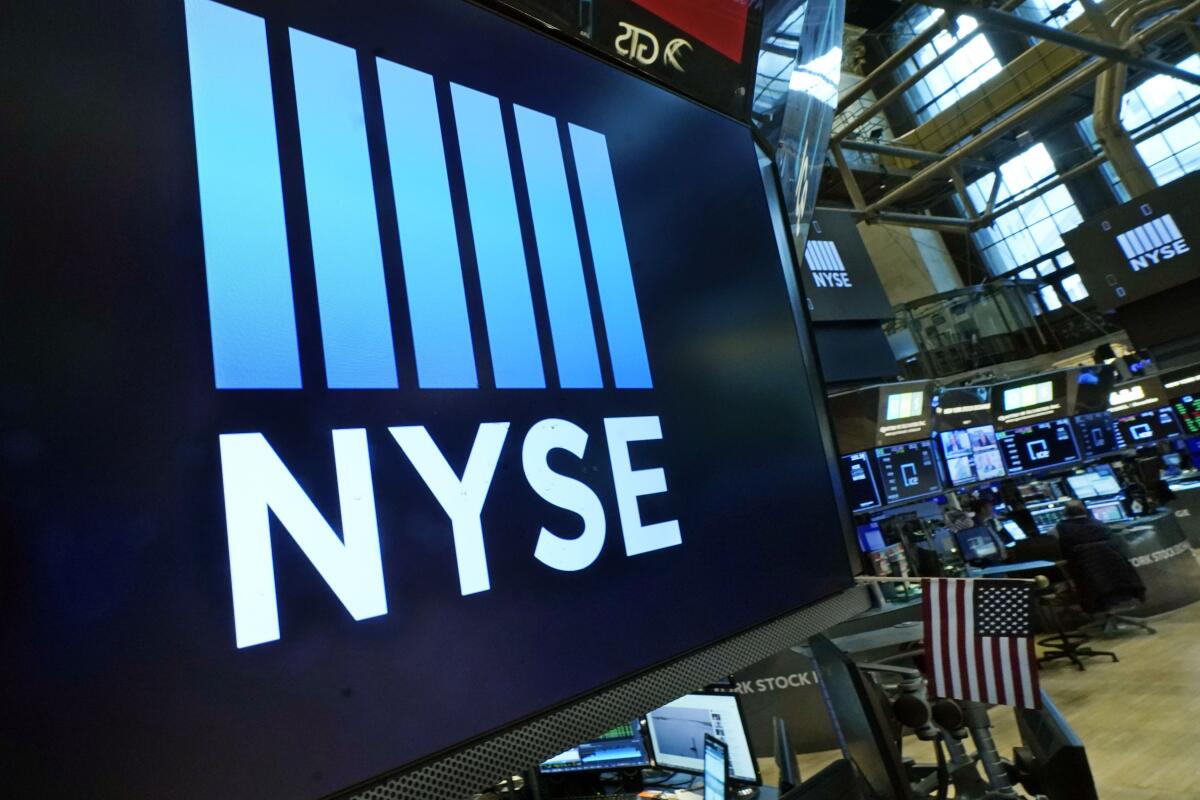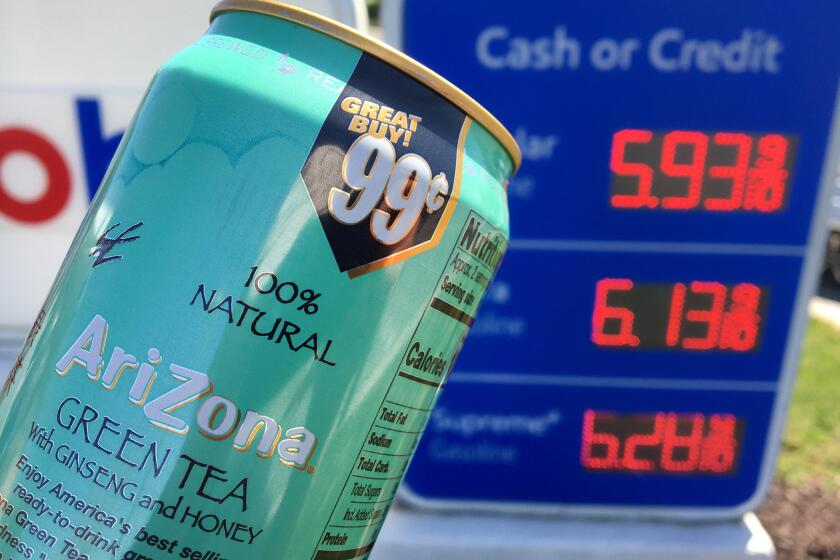Stock indexes slump as worries grow over higher interest rates

- Share via
A sharp sell-off left the Dow Jones industrial average more than 1,000 points lower Thursday, wiping out the gains from Wall Street’s biggest rally in two years, as worries grow that the higher interest rates the Federal Reserve is using in its fight against inflation will derail the economy.
The benchmark Standard & Poor’s 500 index fell 3.6%, marking its biggest loss in nearly two years, a day after it posted its biggest gain since May 2020. The Nasdaq composite slumped 5%, its worst drop since June 2020. The losses by the Dow and the other indexes offset the gains from a day earlier.
“Yesterday’s sharp rally was not rooted in reality, and today’s dramatic sell-off is a reversal of that misplaced exuberance,” said Ben Kirby, co-head of investments at Thornburg Investment Management.
Wall Street’s breakneck reversal reflects the degree of investors’ uncertainty and unease over the array of threats the economy is facing, starting with inflation running at the highest level in four decades and how effective the Federal Reserve’s bid to tame higher prices by jacking up interest rates will be.
On Wednesday, the Fed raised its benchmark interest rate by half a percentage point as part of an effort to slow consumer borrowing and tamp down inflation. The market rallied when Fed Chair Jerome H. Powell dismissed the possibility the Fed could resort to a more aggressive three-quarter-point hike in the future.
Now, traders are starting to fret more about the effect of the Fed’s moves to damp demand and slow the economy.
“The Fed is between a rock and a hard place, and because of instant information investors are experiencing both fear and greed at the exact same moment,” said Sam Stovall, chief investment strategist at CFRA.
The Fed’s aggressive shift to raise interest rates has investors worrying about whether it can pull off the delicate dance to slow the economy enough to halt high inflation but not so much as to cause a downturn. The pace and size of interest rate increases are being scrutinized closely on Wall Street.
“Investors realized that by the Fed continuing to take a very measured approach, it could actually allow inflation to remain out of control,” Stovall said.
Tall cans of AriZona iced tea have cost 99 cents since 1992. The family behind the company says it’s committed to that price even as the prices of aluminum and corn syrup climb higher.
The Fed’s half-point increase had been widely expected.
The central bank also announced that on June 1 it will start reducing its huge $9-trillion balance sheet, which consists mainly of Treasury and mortgage bonds. Those large holdings are a policy tool the Fed uses to keep long-term interest rates, such as those on mortgages, low.
Powell’s assurance that a 0.75-point increase is not in the offing doesn’t mean the Fed is done raising rates as it fights to tame inflation. Economists at BNP Paribas expect the Fed to keep raising the federal funds rate until it reaches a range of 3% to 3.25%, up from zero to 0.25% earlier this year.
“We do not think this was Chair Powell’s intention,” economists at BNP Paribas wrote in a report, citing the market’s jubilance Wednesday, “and we reckon we could see coming ‘Fedspeak’ seek to retighten financial conditions.”
The Bank of England on Thursday raised its benchmark interest rate to the highest level in 13 years, its fourth rate hike since December as U.K. inflation runs at 30-year highs.
Energy markets remain volatile as the conflict in Ukraine continues and demand remains high amid tight supplies of oil. European governments are trying to replace energy supplies from Russia and are considering an embargo. OPEC and allied oil-producing countries decided Thursday to gradually increase the flows of crude they send to the world.
Higher oil and gas prices have been contributing to the uncertainties weighing on investors as they try to assess how inflation will ultimately affect businesses, consumer activity and overall economic growth.
The latest corporate earnings reports are also being closely watched by investors trying to get a better picture of inflation’s effect on the economy. Cereal maker Kellogg rose 3.5% after reporting encouraging financial results. Etsy stumbled 16.8% after giving a weak forecast.
Twitter rose 2.7% after Elon Musk said he had secured more backing for his bid to take over the company.
Technology companies had some of the biggest losses and weighed down the broader market, in a reversal from the solid gains they made a day earlier. Internet retail giant Amazon slumped 7.6% and Google’s parent company fell 4.8%.
Home builders fell broadly as average long-term home loan rates climbed. D.R. Horton slid 5.9%.
The average rate on a 30-year fixed-rate mortgage rose to 5.27% this week, its highest level since 2009, according to mortgage buyer Freddie Mac. A year ago, it averaged 2.96%. Mortgage rates tend to follow moves in the 10-year Treasury yield. The sharp increase in mortgage rates has strained affordability for home buyers after years of sharply rising prices.
Associated Press writer Stan Choe contributed to this report.
More to Read
Inside the business of entertainment
The Wide Shot brings you news, analysis and insights on everything from streaming wars to production — and what it all means for the future.
You may occasionally receive promotional content from the Los Angeles Times.











